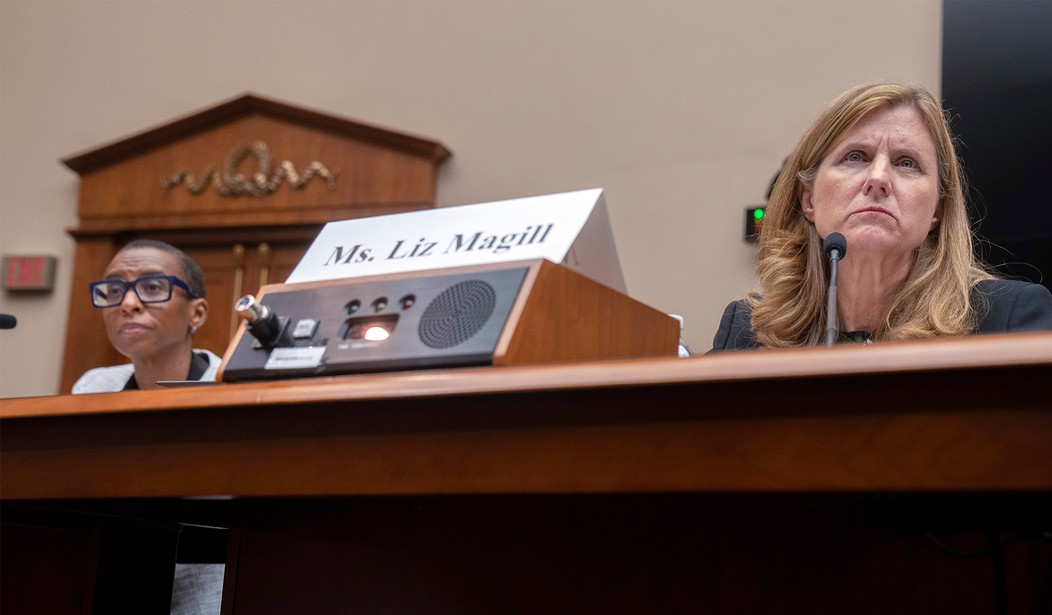The issue of speech on college campuses has once again taken center stage amid the debate over the war between Israel and Hamas. The conflict in Gaza has brought concerns about the rise of antisemitism, especially in universities.
As the war rages on, anti-Israel activists have swarmed college campuses and cities, advocating for a ceasefire in the region and supposedly advocating on behalf of the Palestinians. With these demonstrations has come increasingly heated rhetoric, and even calls for genocide among some of those participating in the protests.
This has prompted another debate over the types of speech that should be allowed on campuses, especially among schools that are privately owned. Author Claire O. Finkelstein penned an op-ed for the Washington Post in which she argued that colleges should restrict speech to fight antisemitism. In the piece, she highlights the recent controversy that arose when presidents of prominent universities gave testimony before Congress and indicated that anti-Jewish speech does not violate their rules concerning harassment even if it is abhorrent.
This is because the value of free speech has been elevated to a near-sacred level on university campuses. As a result, universities have had to tolerate hate speech — even hate speech calling for violence against ethnic or religious minorities. With the dramatic rise in antisemitism, we are discovering that this is a mistake: Antisemitism — and other forms of hate — cannot be fought on university campuses without restricting poisonous speech that targets Jews and other minorities.
University presidents are resisting this conclusion. Rather than confront the conflict between the commitment to free speech and the commitment to eliminating the hostile environment facing Jewish students on campus, many simply affirm their commitment to both or buy time by setting up task forces to study the problem. Some have attempted to split the difference by saying they are institutionally committed to free speech but personally offended by antisemitism. Others have said the answer to hate speech is education and more speech.
The author points out that the schools in question are private institutions and are “not bound by the First Amendment.” She also notes that “even public universities that are bound by the First Amendment are not helpless in the face of hate speech,” and that they can “restrict the ‘time, place and manner’ of demonstrations” as well as restricting speech “that incites violence” or “involves threats of violence against specific individuals or that involves the targeted harassment of members of the community.”
She also brings up Title VI of the Civil Rights Act, which mandates that these institutions do not devolve into “hostile environments” that “exclude students of ethnic, religious or racial minorities from receiving the benefit of educational programs and activities on campus.”
While private institutions have more latitude when it comes to addressing certain types of speech, Finkelstein’s assertions could lead to a dangerous place. It highlights the tension between freedom of expression and freedom of association. If one owns a school or company, they have the right to disassociate themselves from people espousing ideas that conflict with their values. This means that if the University of Pennsylvania or Harvard don’t want their facilities used to promote the genocide of Jews, then the government has no business forcing them to do so.
However, one of the problems I have seen with this debate is that the principles are not being applied consistently. Pro-Hamas supporters have been outright calling for the ethnic cleansing of Jews from Israel. Others who aren’t going quite that far have still made highly disparaging remarks against the Jewish people and have even threatened Jewish students.
The question is: Would these private institutions defend this speech if it were directed at black Americans? Hispanics? Whites?
Probably not.
If a private institution is going to impose restrictions on speech, these rules should apply to speech targeting all groups instead of selectively enforcing them.
But, at the end of the day, a free market approach to this issue seems most appropriate. Some students might wish to attend schools that allow for the free flow of ideas – including awful ones. Others might want a college that places some restrictions. Still others might want even more restrictions. The beauty of the free market is that one can choose which institution they wish to attend instead of being confined to one style of education. There is no one-size-fits-all solution to this problem.
Allowing more leeway when it comes to schools implementing policies regarding speech, and the ability of individuals to make their own choices, is likely the best approach. In this way, the liberty to choose would be the motivating factor shaping how universities handle speech issues, which is a far more desirable outcome than allowing the state to decide.













